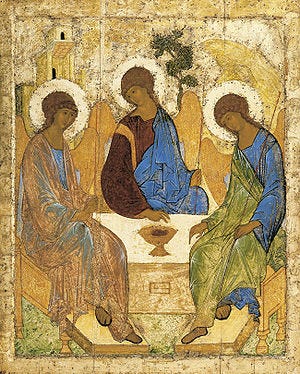Appreciating the Trinity
After my second year in seminary, I participated in a summer preaching intensive attended by students from all of the Episcopal seminaries. Meeting in small groups, we started by preaching a sermon we had already preached to a congregation at home. I brought a sermon I had preached on Trinity Sunday. During the group’s critique, one student — tall, confident and nearly twenty years younger than me —said that my sermon reflected an erroneous understanding of some aspect of the Trinity. I guessed he was right because I didn’t even understand what he said my error was. Clearly I had missed something that I needed to know.
I made my third year in seminary all about the Trinity. I read ancient texts, modern explanations and progressive “out there” interpretations. I wrestled with different approaches following their logical moves until I felt I had that version of the Trinity pinned. Inevitably, the feeling would fade as the Trinity never stayed pinned. It always escaped.
The Trinity kept escaping because the Trinity is not logical. It may read like an argument, but it was born from a flash of awareness. It looks like a formula for God, but mostly it is an insight.
It is like an icon

Andrei_Rublev - Angels at Mamre. From Wikipedia
or a poem. ← (Please read this Billy Collins poem.)
An icon or a poem invites us to gaze, listen and wonder: to appreciate it, not torment it for what it is not.
A poem or an icon is helpful if, (1) we like it, (2) we can carry it around with us in the pocket of our heart and mind, and (3) we like to share it. Somehow, in all of that, it makes us a better person.
The Trinity is like that. It is a thing for us to appreciate: to gaze upon, listen to, wonder about and share. Especially if somehow, it has made us a better person.

